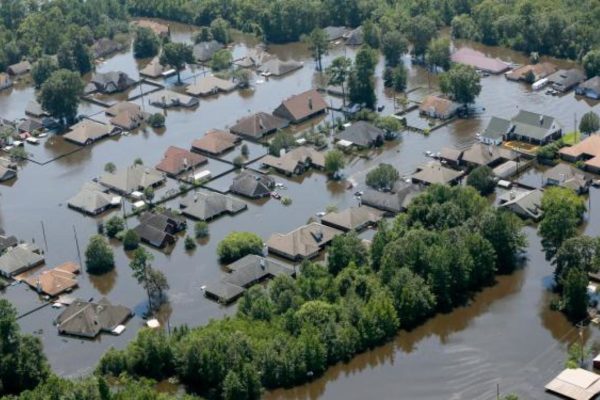AUSTIN, Texas — The Texas General Land Office (GLO) is partnering with researchers at The University of Texas at Austin’s Bureau of Business Research, part of the IC2 Institute, to conduct a survey seeking feedback from homeowners and renters to assess the status of the remaining needs resulting from Hurricane Harvey, Texas Land Commissioner George P. Bush announced today.
The results of the survey will help the GLO identify the most appropriate type of housing assistance for those in the 49 impacted Texas counties that will be receiving Community Development Block Grant for Disaster Recovery (CDBG-DR) funds for housing assistance from the U.S. Department of Housing and Urban Development (HUD).
“As the GLO continues to work with local leaders to provide long-term recovery assistance to the people of Texas, it is important to continue to reassess the remaining housing needs of individual communities,” said Pete Phillips, senior director for community development and revitalization. “The GLO remains committed to helping communities to effectively and efficiently recover from one of the most damaging storms in our nation’s history.”
“We are partnering with the Texas General Land Office on a survey to determine how we can best help Texans whose homes or apartments were damaged by Hurricane Harvey,” said Bruce Kellison, director of the Bureau of Business Research. “This survey is important to ensure that available relief funds are targeted correctly for the greatest impact.”
Researchers at UT helped design the survey and, after responses are collected, will analyze the results and make recommendations to the GLO about how housing needs vary among the 49 counties affected by Hurricane Harvey. For example, some areas may have greater need for affordable rentals, while other areas may have a greater need for homeowner reimbursement for reconstruction and repairs. This analysis will help inform the needs assessments associated with many of the recovery programs the GLO plans to administer.
“It may go without saying, but in many places, economic recovery starts with repairing regional housing stock. If you can’t live there, you can’t work there, either,” Kellison said.
The GLO is responsible for coordinating with federal agencies and community officials to support Hurricane Harvey recovery efforts, including the short-term housing assistance programs in coordination with the Federal Emergency Management Agency and the administration of CDBG-DR funds allocated by HUD.
The survey will be open for two weeks starting June 1. The results will be analyzed and submitted to the GLO in late June. Individuals whose housing was affected by Hurricane Harvey may participate in the short survey by visiting www.harveysurvey.com.




